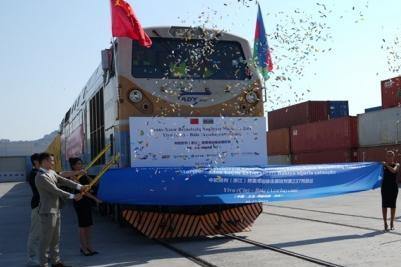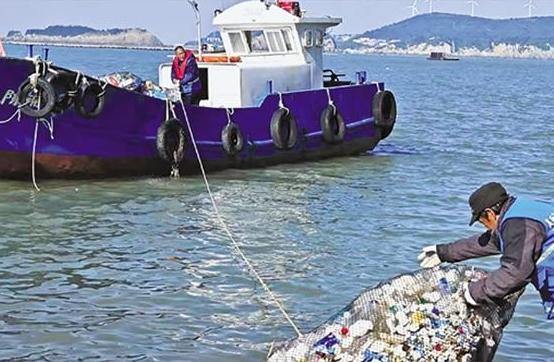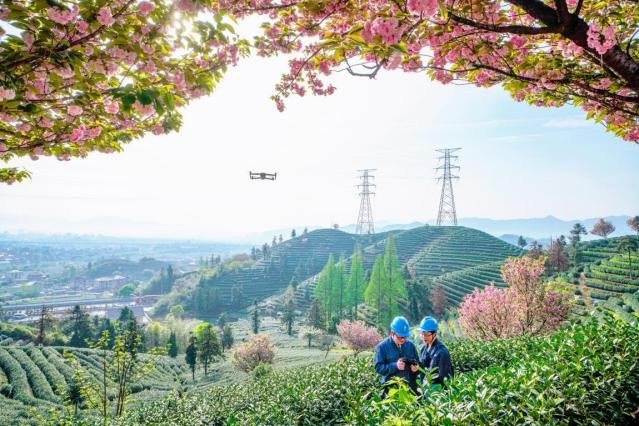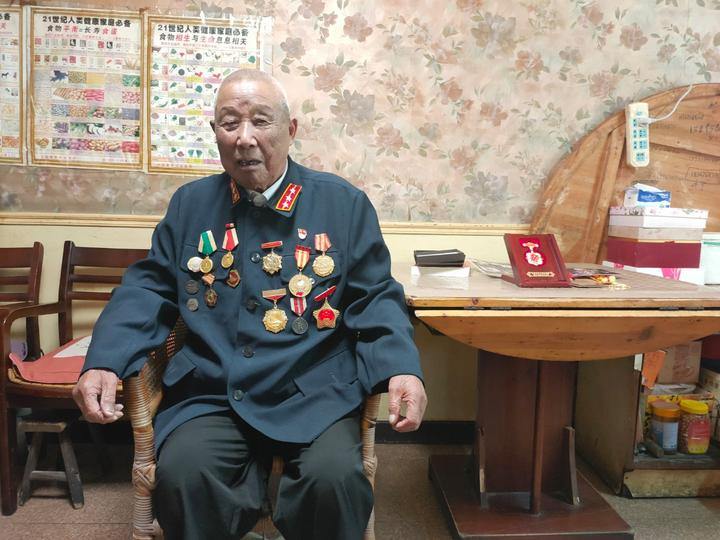
"When we came back from the battlefield, people said that we are the 'loveliest people', please make sure to write this comment in the newspaper, as a favor for me." This sentence runs through the whole interview process with Chen Longgang, recurs twelve times.
In Jiaojiang, Taizhou, the 94-year-old soldier Chen Longgang settled next to the Martyrs' Cemetery of the Battle of Yijiangshan Island. In previous years, he would go up the hill to see his former comrades occasionally. Chen Longgang’s wife and daughter are taking care of him now, although he needs help walking, and his vision is a bit impaired already, his speech is still well-delivered with clear logic.
The memory of the war in the past is alive yet cruel in his account.
Chen Longgang was under the age of 18 when he first joined the guerrillas. After countless battles he is marked for life, his leg was fractured, his body was wounded, there are still left pieces of shrapnel left inside…But when talking about that war in a foreign country, Chen Longgang is still blood-boiling exited. When it comes to the tidemark of the story, there are tears in his eyes.
Chen Longgang mentioned a lot of names, comrades, company commander, platoon leader, instructor ... In his intermittent recollections, these names together formed a glorious title: Chinese civil volunteer army.
"I lost my mother when I was 2 and my father at 14. Ever since I can remember things, it was just me and my older brother. "
At that time, in a small county town in Anhui province, Chen Longgang is not called Chen Longgang, he and his brother are the landlord's domestic helpers, their daily work was pasturing cattle, mowing, cooking, landlords will give them a morsel of food, but they only had sobriquets, never proper names.
Around the age of 15, Chen Longgang felt that the surrounding environment had changed. With bandits and Japanese troops on the mountain, their lives were no longer peaceful. Houses, cattle, food... Wherever the Japanese went, none were spared.
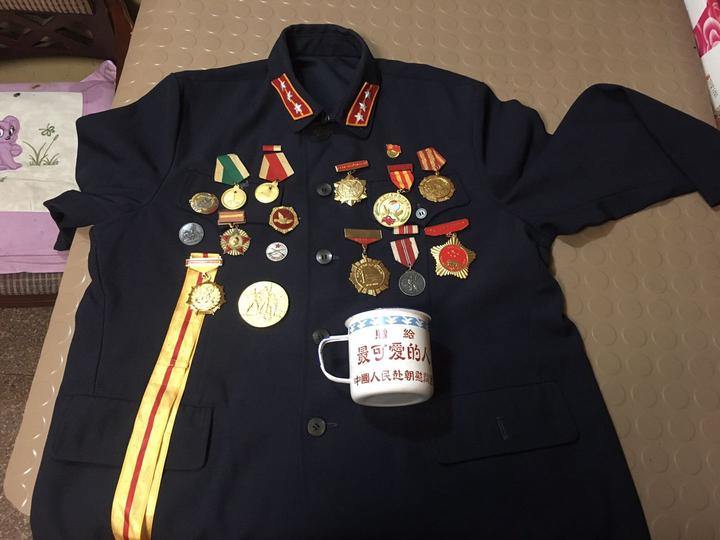
The leader who lobbied the villagers was called Gao. Chen Longgang was in the crowd, listening to his impassioned speech: "Don't you want to stand up and fight?" "
Although he was barely 18 years old at the time, Chen was strong enough for his self-recommendation to be accepted quickly.
Captain Gao asked if he had a name, Chen shook his head.
“Then I’ll give you one, your brother’s surname is Chen, you are Chen Longgang now,” said Captain Gao.
Chen Longgang still remembers his first task: disguised as one of the "good people" (an identity given by the Japanese troop) to send chicken, vegetables, and tofu into the Japanese troop bunker. There was no gun in his cart, and as soon as he entered the door, he took the guard's gun, and the guerrillas ambushed outside took the opportunity to storm the bunker...
During his four or five years in the guerrillas, Chen Longgang became captain because of his boldness. He then joined the New Fourth Army, wore an army uniform for the first time, and participated in a formal battle.
On the day of liberation, Chen Longgang felt a sense of relief. He thought he could finally have a rest. What he didn't expect was that he received a task again even before he could build up a family of his own, and that task was to fight another fight in North Korea. Without thinking too much, Chen Longgang once again packed his belongings, set foot on the land he had never stepped on.
The army was in pretty spare condition, and each person had only one thin cotton coat. The whole army crossed the river in the middle of the night, quietly, all they could hear was but the sound of the river - the water of the Yalu River was bone-chillingly cold.
At that time, Chen Longgang was in the 20 Corps 60 Division 178 Regiment of the volunteer army, he was the vice-director in a platoon of high-shooting machine guns. On the battlefield, the enemy's usual tactic was to bomb first and then attack. Facing bombs dropped by low-flying aircraft, we often had to lie in the trenches to escape them. "Our armament forces are much poorer than our enemies, " Chen said, “But that doesn't mean there's no chance of hitting the plane down. "
He remembers deeply the sound of enemy fighter jets across their heads and the noise of the shooting shells. The enemy's firepower suppressed their troop, he could not even lift his head. He was low in the trench with the gun right next to him, aiming at the plane, and then, fire!
He hit the wing of the plane.
In 3 years, Chen Longgang and his comrades managed to shoot down three enemy aircraft, which is what he has been most proud of in his file. The price was also high - Chen Longgang's right leg was shot through the back of his thigh in an attack. In extremely difficult medical conditions, Chen Longgang only did a simple wrap because he had no time to remove all the broken pieces of shrapnel, but he said: "We cannot retreat from the frontline for minor injuries." "Because of this injury, Chen Longgang's left leg is thicker than his right leg, and he needs to walk on crutches for the remainder of his life.
How poor were the living conditions for the volunteer army at that time? Chen Longgang would not mention too much about that. Combining from the memoirs of veterans, volunteers can't make fires to keep warm and cook for the reason that fire would expose them as a target, so in cold winters they just swallowed fried noodles in the snow. Under such conditions, they were there for three years.
In August 1953, Chen Longgang was ordered to leave North Korea. Chen Longgang's death note was in the pocket of his clothes the whole time, however, he was lucky enough not to use it. The war was over, he returned to China, but his war career was not over. Not long after returning home to rest, he went to Jiangshan Island, to his last battle as a soldier.
After retiring from the army, Chen Longgang voluntarily applies to work in the factory. Because his hometown was once flooded, many certificates of honor were lost, which made his wife’s heartache. But as luck would have it, the gift for him when he was in the volunteer army is still there, it is a teapot with the words "Remembrance: Chinese civil volunteer army are the loveliest people", which he regarded as an invaluable treasure.
(Edited by Ye Ke, Translated by Wu Hongjie)
